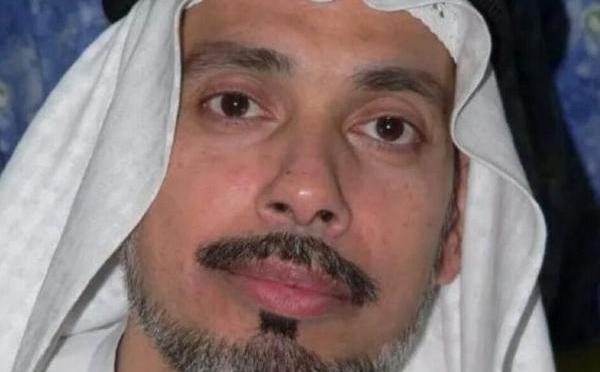Following yet another postponement in the final days of 2016, the trial of Bahraini scholar and activist Khalil al-Halwachi is now set to enter its twenty-third session on 22 January 2017. He is being tried along with 16 others and has been detained by Bahraini authorities for over two years without being sentenced, in clear violation of international human rights law.
In addition to being an engineer and an educator, al-Halwachi was a founding member of the political opposition group Islamic Action Society, also known as Amal. The Bahraini Ministry of Justice and Islamic Affairs (MOJ) dissolved Amal in 2012 after alleging that the group committed “grave breaches” of the country’s constitution and laws; human rights organizations, however, highlighted the MOJ’s decision as “yet another manifestation” of the government’s willingness to use restrictive laws to silence political opposition. Indeed, in the aftermath of the government’s suppression of the 2011 pro-democracy uprising in Bahrain, authorities also arrested hundreds of Amal members and suspended the leftist Wa’ad opposition group over political statements it made.
Al-Halwachi, who was detained and tortured by security forces in 2011 before being tried and released by a military court, was arrested again in September 2014. During this most recent arrest, security forces raided his house despite lacking both a search warrant and an arrest warrant. The Bahraini Public Prosecution interrogated al-Halwachi about his former association with Amal, of which he is no longer a member, without a lawyer present. The prosecution ultimately charged him with possessing a firearm for terrorist purposes.
Al-Halwachi, however, says that Bahraini authorities subjected him to torture, including prolonged exposure to very low temperatures and prevention from using the toilet. Authorities then forced al-Halwachi, while blindfolded, to sign the confession that now serves as the basis of the state’s case against him. Further, al-Halwachi says that the weapon alleged to have been in his possession was in fact planted by Bahraini security forces. These claims – in particular the torture of detainees and the use of coerced confessions – have been a part of Bahrain’s treatment of peaceful political activists in the past.
During a hearing towards the end of 2016, al-Halwachi criticized the judicial system as being unfair. The authorities punished him by removing him from the courtroom and charging him with “insulting the judiciary.” This, combined with what Brian Dooley, Director of the Human Rights Defenders Program at Human Rights First, has called a “drawn-out, farcical trial,” should highlight the government’s lack of real evidence against al-Halwachi.
The government’s treatment of Khalil al-Halwachi is indicative of its broader campaign against political activism and civil society. In June 2016, for example, security forces rearrested Nabeel Rajab, who is the president of the Bahrain Center for Human Rights (BCHR) and one of the country’s most prominent human rights defenders. He faces criminal charges stemming from tweeting and retweeting about torture taking place in Jau Prison and human rights violations taking place in the Saudi-led conflict in Yemen. Rajab’s trial, like al-Halwachi’s, has been repeatedly postponed.
Bahrain’s crackdown on the freedom of expression and the freedom of association is further exemplified by the July 2016 dissolution of Al Wefaq, one of Bahrain’s principal political opposition groups and the largest political society in the country. During the same period, authorities sentenced Al Wefaq’s Secretary-General, Sheikh Ali Salman, to nine years in prison on charges related solely to a political speech he gave.
The Bahraini government’s treatment of Khalil al-Halwachi thus far places it in direct contravention of international human rights law, including the provisions of the International Covenant on Civil and Political Rights (ICCPR), to which Bahrain acceded in 2006. Article 9 of this treaty protects against arbitrary arrest and detention, and its provisions stipulate that detainees must be brought promptly before a judge and are entitled to a trial within a reasonable amount of time. Article 14 of the ICCPR, in addition to protecting a variety of due process rights, also specifically prohibits compelling an individual to confess their guilt. Having arrested al-Halwachi without a warrant before coercing his confession and postponing his trial twenty-two times since it began in March 2015, the Government of Bahrain has failed to meet these standards.
The Government of Bahrain’s treatment of Khalil al-Halwachi has not adhered to its obligations under international law. He, and all other peaceful political prisoners, must be released.
Phil Bracey is an Advocacy Intern at ADHRB.
_________________
**UPDATE: Courts adjourned al-Halwachi’s trial on 22 January 2017 to 23 March 2017.





